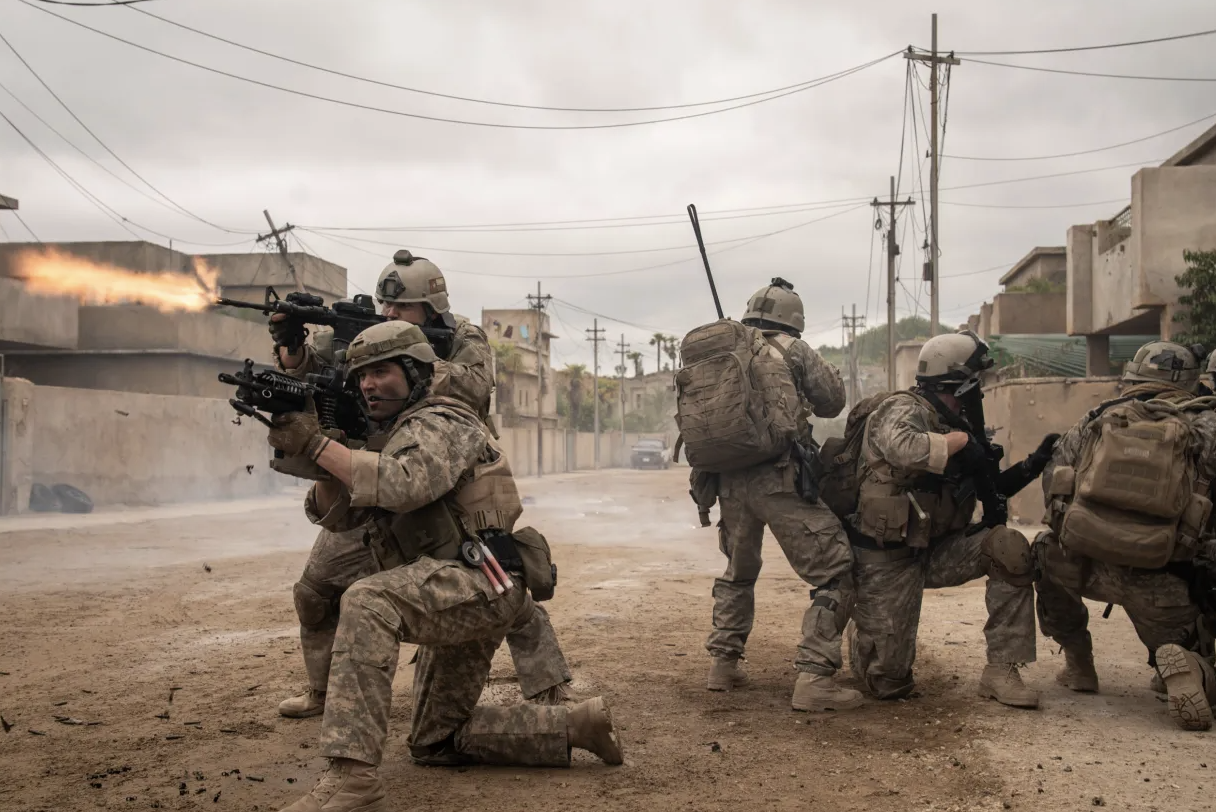‘Warfare’ - Review
Few films are able to match the sensory immersion of Ray Mendoza and Alex Garland's Warfare, yet it still feels like a film that struggles to escape its own limitations. This isn't about whether Warfare is "good" or “bad” in a traditional sense. The cinematography is undeniably beautiful: every shot feels tactile, beads of sweat tasted, every explosion jarring. You can almost smell the film. The sound design alone was enough to shock me. Garland and Mendoza know how to craft – they know how to produce images that permanently integrate themselves into your memory.
But I kept wanting something beyond that sensory experience, especially from a so-called “anti-war film.” Granted, I was not expecting much but given my love for Ex Machina and Annihilation, I was hoping to give Garland’s writing another chance. I wanted something that gave audiences a little more than the "war is hell" messaging we've received for decades on screen. Instead, Warfare ultimately exists as a film whose moral calculus feels suspiciously comfortable: war is bad because of what it does to us, the Americans, the perpetrators. There's an insularity to this perspective that feels thematic to Garland's recent projects. Civil War does the same thing, centering tragedy around our direct spheres: it’s something we should care about only when it comes to our own backyard.
Not once in Warfare do we meaningfully engage with non-American perspectives. The Iraqis exist mostly as threats and if not then their existence is to witness American suffering. Their own suffering remains conveniently off-screen.
Still, given the narrative context, I’m conflicted about this as a critique. This is not just Garland’s film: it’s a true story, Ray Mendoza’s own story, a story of a man who sacrificed so much for a vision he believed to be true. This is his perspective, and his perspective might not include any relevance to the Iraqi POV. Every story deserves to be told, and Mendoza’s is worth sharing. I understand this tension. It’s a certain kind of tension that exists within the push and pull between staying true to one person’s own experiences, while also acknowledging the broader context that story exists within.
I still think that there is a time and place for each story. And as American influences continue devastating global communities, I can't help but feel like the film is trapped within the 2006 sensibilities of its setting. It’s earnest, but fundamentally limited. Garland’s recent projects have become walking embodiments of Americans' struggle to see themselves as members of a global community rather than the main character in every story. Warfare uses the same ideological framework as Civil War in this sense: it continues to enable the notion of “America First.” And when America continues its unabashed involvement with oppression and genocide on multiple global stages, I do not want to be a part of this insularity. I want to be as far away as possible from the “us” that this film is directed towards.
Maybe I am being too harsh; maybe Garland knows exactly what he's doing by meeting a certain audience where they are –creating a Trojan horse of military realism to sneak in anti-war sentiment for those who might otherwise reject it. There's a sort of desperate pragmatism to that approach that I can't entirely dismiss. But I'm tired of art that infantilizes its audiences, treating empathy as something that needs to be tricked into existence through familiarity.
I believe that cinema doesn't need to infantilize its audience; I think we, as viewers, are capable of acknowledging our complicity without making ourselves the center of the moral universe. When I try to place Warfare in the broader context of war films, I see it existing in an uncomfortable middle ground. It’s too realistic to be dismissed as propaganda, too close-minded to be anywhere near profound. It's a film that asks "what does war do to us?" – without ever seriously engaging with the question of "what do we do to others?" And in 2025, that feels like a question we can no longer afford to ignore.



